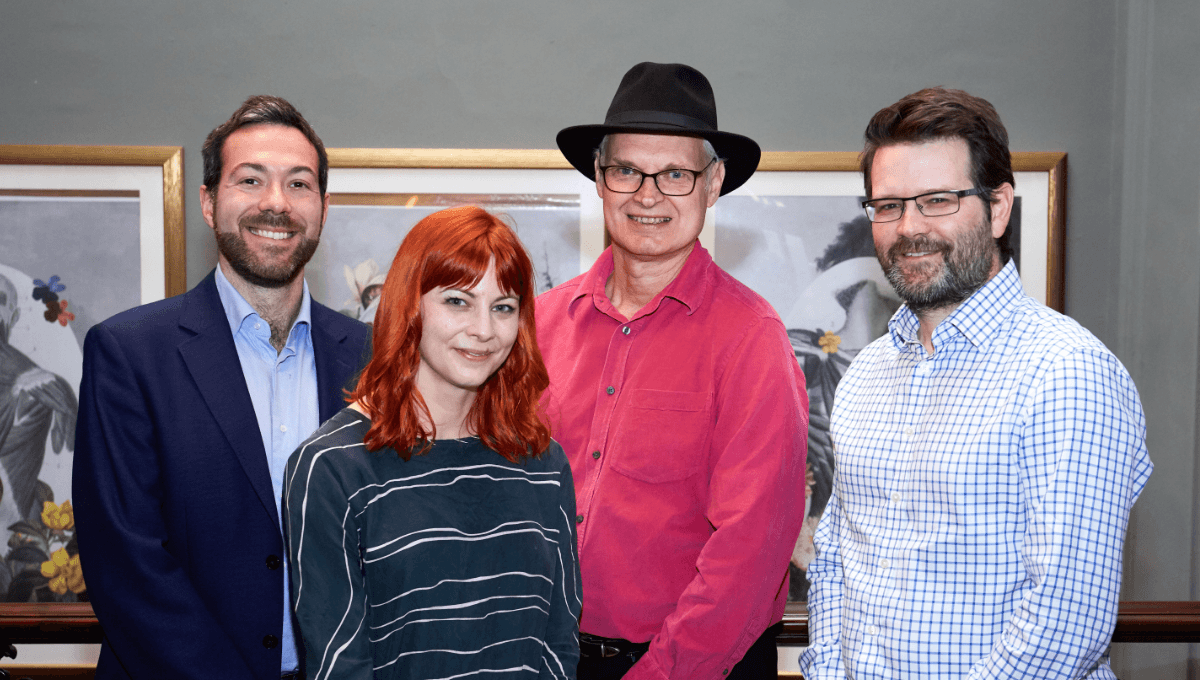Nexus & Bettakultcha presents series – What is the future of Medicine & Health?
Following the success of our first Bettakultcha event earlier this year, we returned last week to tackle the latest topic in our series of thought-provoking discussions. Using Bettakultcha’s unique short and snappy presentation format – 20 slides, 15 seconds per slide – this event looked at the future of medicine and health.
Compered by Bettakultcha co-founder Ivor Tymchak, four speakers challenged the audience to think about what our future world might look like when it comes to our health and the treatments and medicine we consume.
First up was Ivor himself, who took us on a trip back through time to learn about Ignaz Semmelweis, the Hungarian physician who discovered that handwashing, a simple and free practice, could drastically reduce the number of women dying after childbirth. Ivor argued that researching and developing practices and treatments that can’t be monetised will never be a priority for Big Pharma, leaving us to ponder ‘how will medicine develop in the future if R&D investment only comes if the end-result can make a profit?’
Giuseppe Tronchi, Lecturer in Healthcare Materials at the University of Leeds, took us through some of the issues with conventional treatments for chronic wounds, and how they impact nursing time and patient recovery. As many conventional dressings don’t directly engage with the wound, the problem goes untreated and remains in a chronic state. Giuseppe revealed his ambition to develop new multi-functional materials that not only boost healing but also have the capability to detect infection and change colour to alert the patient that further treatment is required.

Our speakers (from left to right) Guiseppe Tronci, Lecturer in Healthcare Materials - University of Leeds, Emma Harvey, Head of Product - NHS Digital, Ivor Tymchak, Co-Founder - Bettakultcha and Zeike Taylor, Associate Professor School of Mechanical Engineering - University of Leeds
Zeike Taylor, Associate Professor School of Mechanical Engineering at the University of Leeds, followed with his talk on in-silico clinical trials. Looking specifically at the treatment of aneurysms, Zeike highlighted the current R&D process, which can be lengthy and expensive, with a high drop-out rate when it gets to human trial. With the significant advancements that individualised computer simulation experiments have had in industries such as automotive, Zeike illustrated the revolutionary potential that it could have on clinical trials if it was adopted into more research.
Finally, Emma Harvey, Head of Product at NHS Digital, delved into the power of data and the potential it has to shape the future of medicine and health. She argued that, although we have masses of data, it is interpreted differently throughout the world. We need to get better at joining it all together to create one common language around how data can and should be used to inform clinical pathways. She suggested that, if we could get to a point where we all defined data in the same way, we could develop a blueprint for a healthy life, along with the best care pathways. Leaving us with a sobering thought – “data has no agenda, but humans do” – Emma stressed the need for an ethical framework and global regulation to avoid the power of data being left in the wrong hands, used for the wrong reasons.
From monetising treatment and exploiting data, to R&D into new materials and virtual trials, the event explored what the future of our healthcare system might look like. Significant opportunities were identified, with advancements in data, multi-functional materials and in-silico clinical trials providing solutions to some of today’s medical challenges. However, it was agreed that there is a major need for more regulation, and an ethical framework, to ensure that these advancements can’t be abused and are always used for good – to shape a better future for the medical sector.
A big thanks to our speakers and everyone who joined us at the event.
